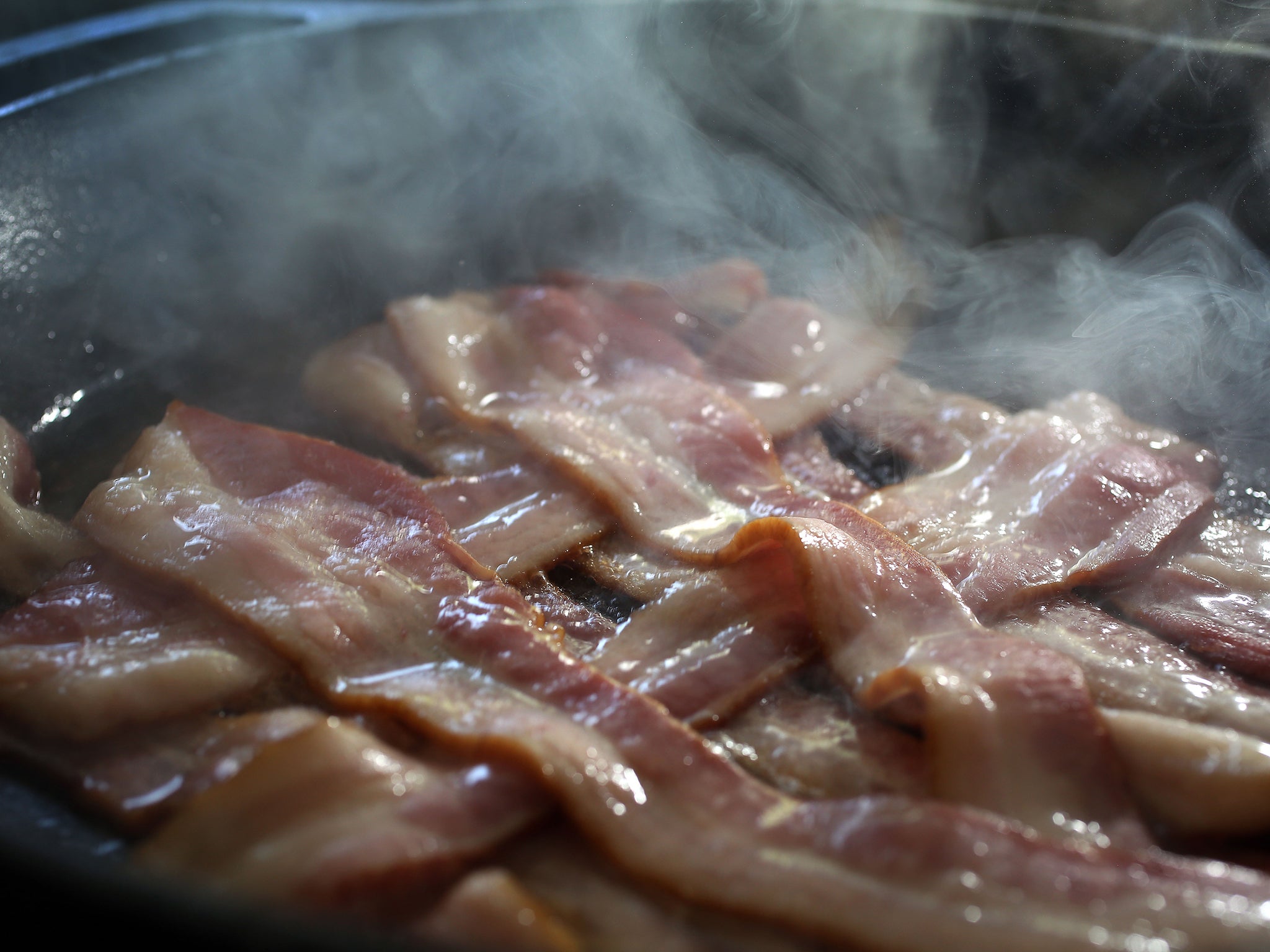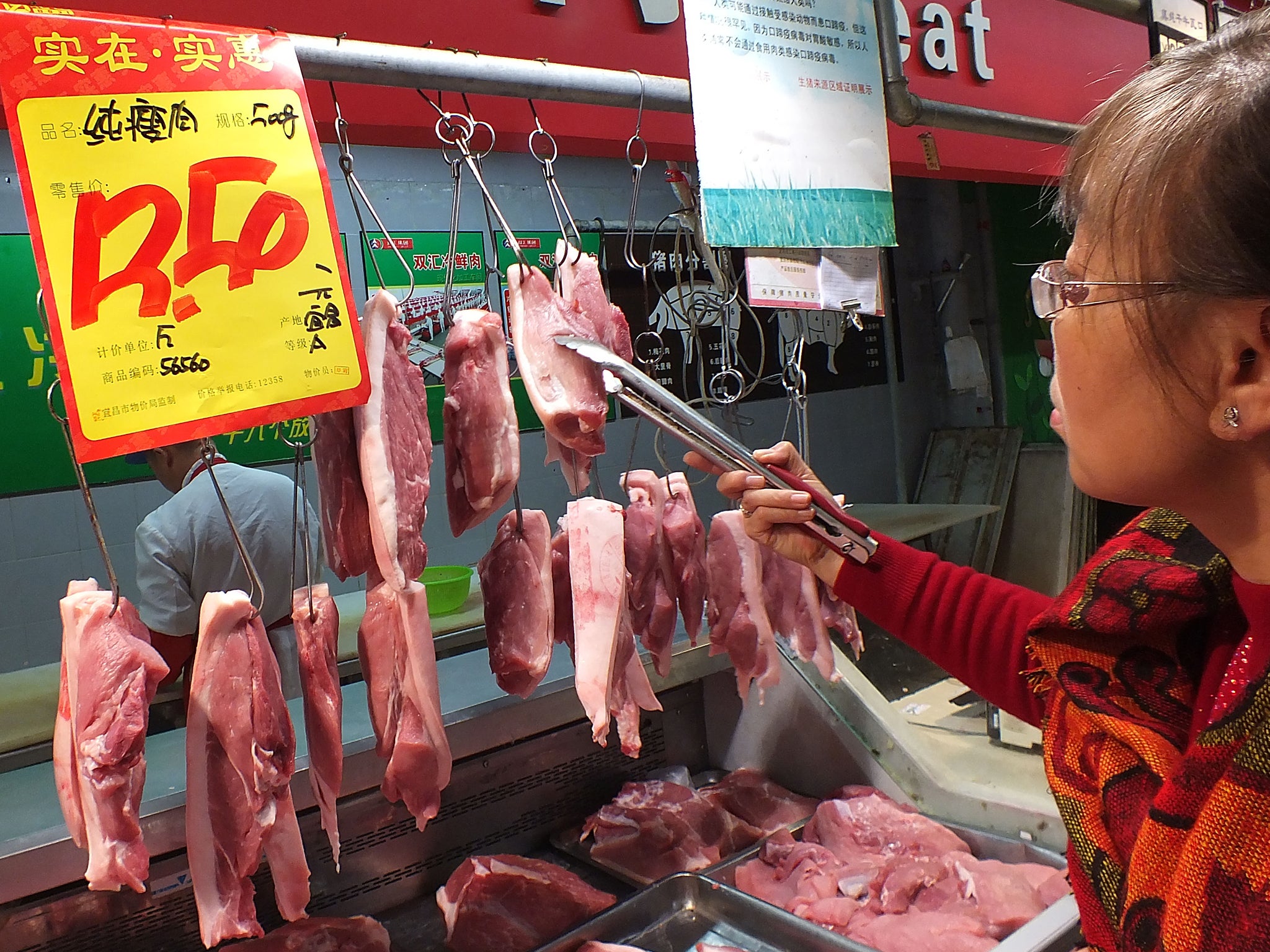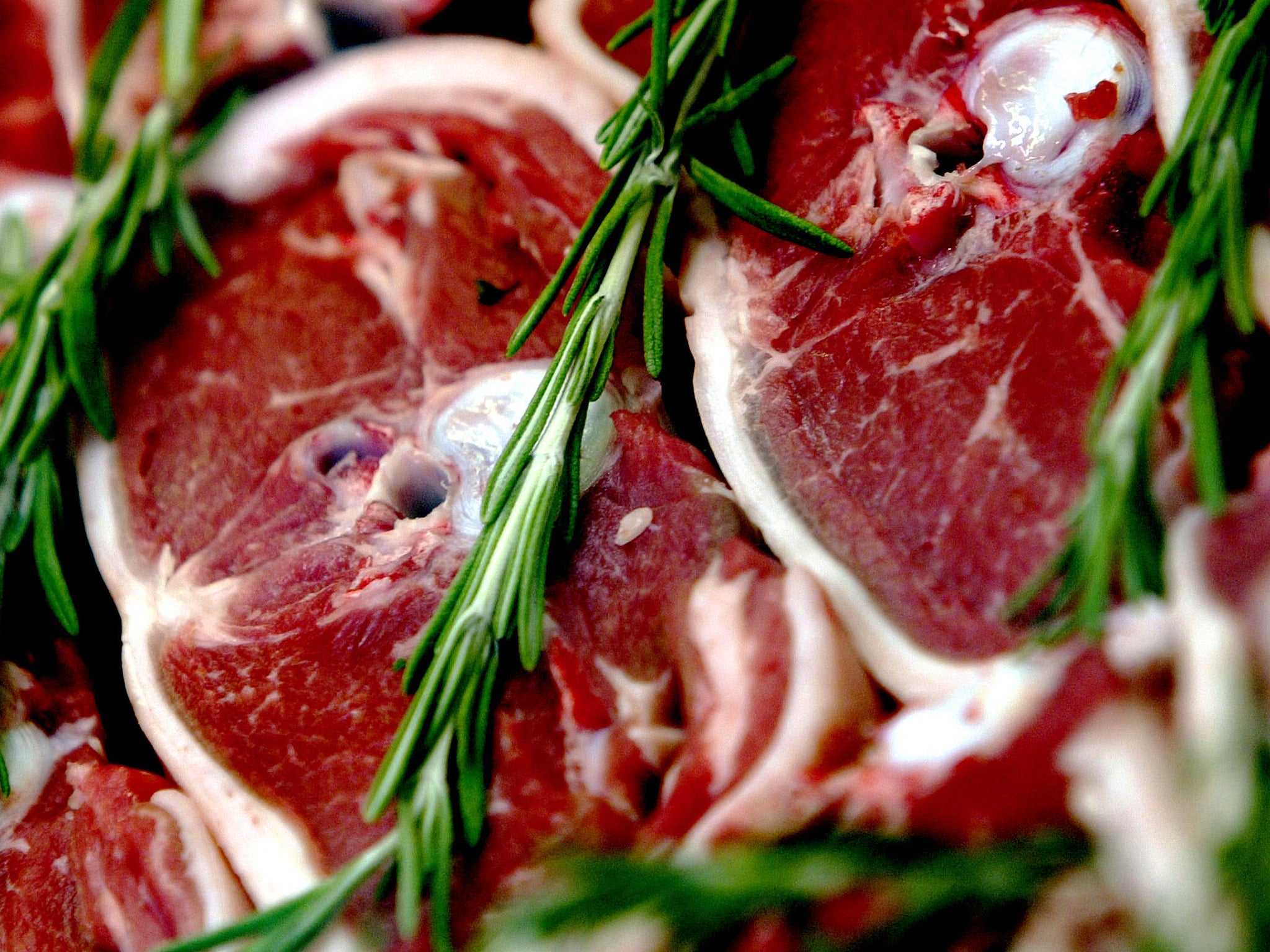Reducetarianism: How to cut down on meat without going cold turkey
One campaigner is encouraging people to drastically cut down on eating meat without cutting it out completely

Your support helps us to tell the story
From reproductive rights to climate change to Big Tech, The Independent is on the ground when the story is developing. Whether it's investigating the financials of Elon Musk's pro-Trump PAC or producing our latest documentary, 'The A Word', which shines a light on the American women fighting for reproductive rights, we know how important it is to parse out the facts from the messaging.
At such a critical moment in US history, we need reporters on the ground. Your donation allows us to keep sending journalists to speak to both sides of the story.
The Independent is trusted by Americans across the entire political spectrum. And unlike many other quality news outlets, we choose not to lock Americans out of our reporting and analysis with paywalls. We believe quality journalism should be available to everyone, paid for by those who can afford it.
Your support makes all the difference.The environmental, health and animal welfare benefits of a meat-free diet are well known - but convincing people to forgo crispy bacon or juicy steak for the rest of their lives is not easy.
There might be a better way, one campaigner says. Instead of advocating vegetarianism, he is encouraging people to drastically cut down on eating meat without cutting it out completely. He calls it "reducetarianism".
"We're at a place in society where very few people are vegan or vegetarian," said Brian Kateman, an American researcher who co-founded the Reducetarian Foundation.
"In order to move that movement forward we need more people, and I don't think we're going to be successful in doing that if we're promoting an all or nothing message," he told Thomson Reuters Foundation in an interview.
Campaigns such as 'Vegan Before 6', and 'Weekday vegetarian' as well as 'Meat Free Mondays' - supported by celebrities including Arnold Schwarzenegger and Paul McCartney - are part of a growing movement to eat less meat.
Cold turkey?
Climate-changing emissions from livestock account for 14.5 percent of the global total, and meat and dairy consumption is rising in the developing world, according to research published last year by Chatham House, a think-tank.
Meat is also relatively expensive compared to plant-based foods - another reason Kateman thinks people should be encouraged to try reducetarianism.
As countries get richer, people tend to eat more meat, so the environmental impact is only likely to get worse in the coming decades.
Pork consumption in China has doubled in the past two decades, according to figures from the OECD, an economic think-tank based in Paris, where a landmark climate deal was reached earlier this month.
The agreement, hailed as the first truly global climate deal, committed both rich and poor nations to reining in rising emissions blamed for warming the planet. Campaigners think cutting down on meat is one easy way.
Some people forego meat for animal welfare reasons, as chickens, pigs and cows are sometimes kept in cruel conditions. Others abstain because of health problems associated with heavy meat consumption.

Kateman, who says he is not fussy about people's motives for cutting down on meat, thinks reducetarianism can offer a "practical, realistic and engaging solution".
As an occasional meat-eater who acknowledges bacon's appeal, Kateman thinks the "less rather than none" message is more appealing than that of vegan or vegetarian campaigners.
Not quite the whole hog

Getting a meat lover to halve their consumption does more good than getting an occasional carnivore to abstain completely, he notes. He also thinks cutting down may be a step to eventual abstinence.
"If I am going to eat meat, I try to make it something that's rare, something that's special, and certainly whenever I have meat, it's a much smaller portion," said Kateman, who currently eats meat around once a week or less.
Will MacAskill, a British moral philosopher and animal welfare campaigner, sees 'reducetarians' as valuable allies, but doesn't think the campaign does enough for animals.
"If you care about animal welfare and the environment, the two are just almost the opposite of each other because the more efficiently you can farm animals, the lower the carbon emissions but the more cruelly you treat the animals," he said.
Thousands of people have taken the Reducetarian Foundation's pledge to eat less meat, said Kateman.
"The ideal is the less meat the better ... We just want to get people started."
Thomson Reuters Foundation
Join our commenting forum
Join thought-provoking conversations, follow other Independent readers and see their replies
Comments